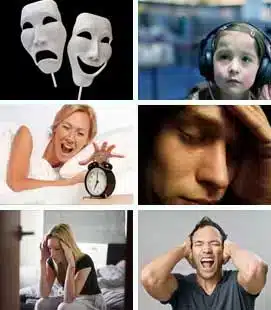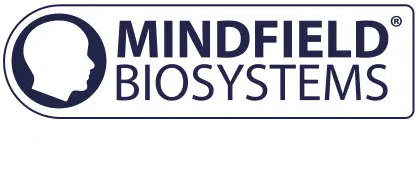Possibilities with neurofeedback
Clinical Applications
For the healthy user, neurofeedback offers great potential for improving cognitive abilities. For the healthy user, neurofeedback offers great potential for improving cognitive abilities. However, according to the definition, neurofeedback is a subcategory of biofeedback, but the separation due to the focus on the brain is clear.
This does not only address top athletes or people who have to achieve a high mental performance due to their job, but also all other people from childhood to old age. The direct feedback of brain activity provides information about the mental and physical state. Especially as an observation to external stimuli this can be very informative
Anyone can increase their ability to concentrate, sometimes dramatically, through neurofeedback training. Learning and memory skills are also improved. Stress can be relieved effectively and for a long time. The different states of the brain can be influenced in self-regulation. For example, the different wave components are trained, so there are oscillations that are often accompanied by reduced concentration. Such are visualized and thus the absence of them is associated with a positive feeling and reinforced. Before a meeting, you should carefully note down your goals and your intention. Brain activity can be actively influenced in this way in any case.
Areas of application for improving cognitive skills include:
- Increasing the ability to relax
- Increase stress tolerance
- Training of attention and concentration
- Meditation
- Control of relaxation techniques
- Increase the absorption capacity
- improved self-awareness and self-regulation
- Training of specific skills (e.g. steady hand)

All images from top left to bottom right:
Daniel Gilbey © www.fotolia.com; © www.ingimage.com;
© www.ingimage.com; Pascaline Lopez © www.fotolia.com
In 2007, a study appeared recommending neurofeedback, especially for older people, as a way to maintain habitual mental fitness. The results of this study are promising. Keeping the mental faculties busy into old age is considered an important preventive measure against unwanted symptoms. Thus, it has been found there that peak alpha waves, which diminish with age, can tune to a higher level by direct training.
Neurofeedback should also be recommended to musicians and artists; here, too, there are already many interesting studies on successful experiments. The deep penetration into the subject matter with the release of high creativity was observed. The subject matter is closely related to the “flow state,” a highly concentrated state in which one is completely immersed. The absence of interference in this state allows for incredibly high cognitive performance. However, in this state, the sense of time is lost. In the EEG, such a condition can usually be detected by measuring the brain waves.
Clinical applications
Neurofeedback is now used in many areas and new applications are continually being added.
AD(H)S is the best-studied application of neurofeedback and studies have shown great success. Combined treatments using medication and neurofeedback training as adjuncts have also been undertaken.
In epilepsy, various treatments and studies using neurofeedback training have successfully reduced the number of seizures. Smaller and smaller devices will facilitate outpatient treatment more and more.
A now typical application is also rehabilitation after a stroke. If an area in the brain is permanently disturbed due to interrupted blood supply, neurofeedback training can accelerate relearning. For paralysis caused by strokes, exercising can help control prostheses and improve the condition, as has been shown, for example, in Tübingen, Germany. See study.
Even with the complex topic of migraine, verifiable successes were achieved in a study as early as 2010. Combinations of biofeedback, neurofeedback training and classical medications showed particularly good effects here.
Neurofeedback is used supportively in the following areas, among others:
- Attention Deficit Hyperactivity Disorder (ADHD)
- Epilepsy
- Tinnitus
- Autism
- Stroke
- Addictive diseases (e.g. alcoholism)
- Tic disorders, Tourette syndrome
- Anxiety disorders
- Depression
- Migraine
- Mood swings
- Sleep disorders

All images from top left to bottom right:
Eduard Härkönen © www.fotolia.com; designritter © www.photocase.com;
© www.ingimage.com; madochab © www.photocase.com;
© www.ingimage.com; Jonas Glaubitz © www.fotolia.com
Possibilities with current technology
The first groundbreaking research with neurofeedback training began as early as around 1967. At that time, however, technological progress was still far behind. Today, brain activity can be measured with tiny devices in the comfort of one’s own home. It will rely on built-in electrodes, standards like Bluetooth or USB charging. Today, with the support of neurofeedback, one can meditate in this way, for example. Observing brain activity also helps to find out what state of relaxation the brain is in.
Medical use has also progressed. Monitors are no longer necessarily tied to the device, electrodes became smaller, more convenient and more accurate. Many procedures have improved. Today, a single EEG session already produces very accurate results. Approaches to training activity have improved.
In summary, this means a wide variety of individual application possibilities. In one session, trained staff can help determine which procedure is right for one’s goals or symptoms.
Does neurofeedback help eliminate sleep disorders?
The normal sleep rhythm is characterized by so-called REM phases (rapid eye movement) and deep sleep phases. These repeat approximately every 90 minutes. This means that every 90 minutes during sleep we are in the REM state, which is important for the consolidation of memory content, of newly learned and trained multisensory movement patterns (slacklining, parachuting, unicycling, etc.). During the REM phase, countless connections (synapses) are formed between the extensions of different nerves. New neuronal networks are thus created. This is also the phase in which most dreams take place. There is a very close connection between learning and REM sleep.
A so-called sensorimotor rhythm in the frequency range 12 to 15 hertz is typical for the falling asleep and light sleep phases. In a scientific study conducted at the University of Salzburg in 2014, it was shown that after several neurofeedback training sessions, subjects suffering from sleep disturbances were able to voluntarily generate the necessary EEG frequency band of 12 to 15 hertz through mental relaxation. Not only did this make it easier to fall asleep, but any learning content was also better processed and consolidated.
The main advantages of this training for improved sleep hygiene over sleeping pills is that there can be no habituation or dependence effect. Experiences and learning content can be better processed and consolidated. With many medications, there is a risk of side effects or interactions with other medications. With the relaxation patterns that can be learned through neurofeedback, these cannot occur due to the principle. Depending on the personal situation and the duration of the sleep or falling asleep disorders, neurofeedback training may be the more beneficial long-term alternative.
Brain activity and breathing – neurofeedback
In 2014, a study (“Study of Brain Activity Analysis of Deep Breathing“) investigated the connection between deep breathing and brain activity. Good deep breathing can have a positive impact on health and stress levels, according to a study statement. Science divides brainwaves into many different patterns, but the most commonly used are these 5 (name and simplified explanation).
- Theta waves: They occur more frequently during sleepiness and in the light sleep phases N1 and N2. Frequency range between 4 and 8 Hz.
- Alpha waves: Common during mild relaxation or relaxed alertness, with eyes closed. Frequency range between 8 and 13 Hz.
- Beta waves: They occur under various circumstances, such as REM sleep or active concentration. Frequency range between 13 and 30 Hz.
- Delta waves: dreamless deep sleep, low frequency from 0.1 to <4 Hz.
- Gamma waves of strong concentration, learning processes and meditation. Frequency range above 30 Hz.
- The waves never appear alone, overall it is more like noise, yet the proportions of frequencies are different depending on the condition.
A very asynchronous pattern of all frequency bands indicates, for example, strong emotional stress or loss of voluntary control, while increased slow waves with simultaneously few fast waves indicate a sleep or dozing state.
The analysis of exactly such patterns happens in neurofeedback in short time intervals. When focusing on something, they lose focus on something else. In a concentrated state, some functions that you could also do consciously are done by your autonomic nervous system, for example breathing. On the other hand, breathing also couples back to brain wave patterns, the study showed. Such changes can then be perceived by the neurofeedback device. However, if you want to control your breathing in a dedicated way, you should do direct breathing exercises, possibly with a breathing feedback device.
Neurofeedback Breathing and Creativity?
Breath feedback training, a discipline all its own, analyzing breathing. Different method of neurofeedback, it therefore gives direct information about our thoughts, in what way these thoughts use the brain. Particularly experienced users can, if they are particularly focused on their state of mind, e.g. in the sense of meditation, use neurofeedback in addition to the breathing exercises practiced there, this can indicate particular information about the success of the exercise. Breathing exercises are used in such focus exercises because one can actively control the breath well. This leads to similar changes in brainwave patterns as neurofeedback training in such traditional techniques as meditation.
